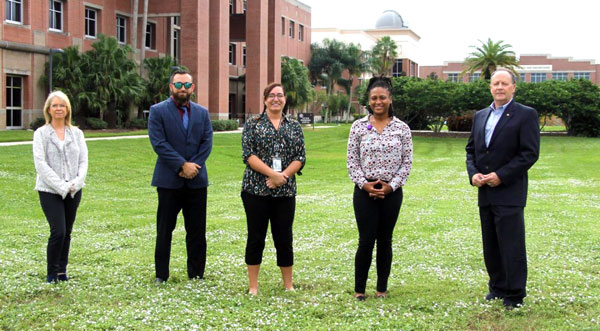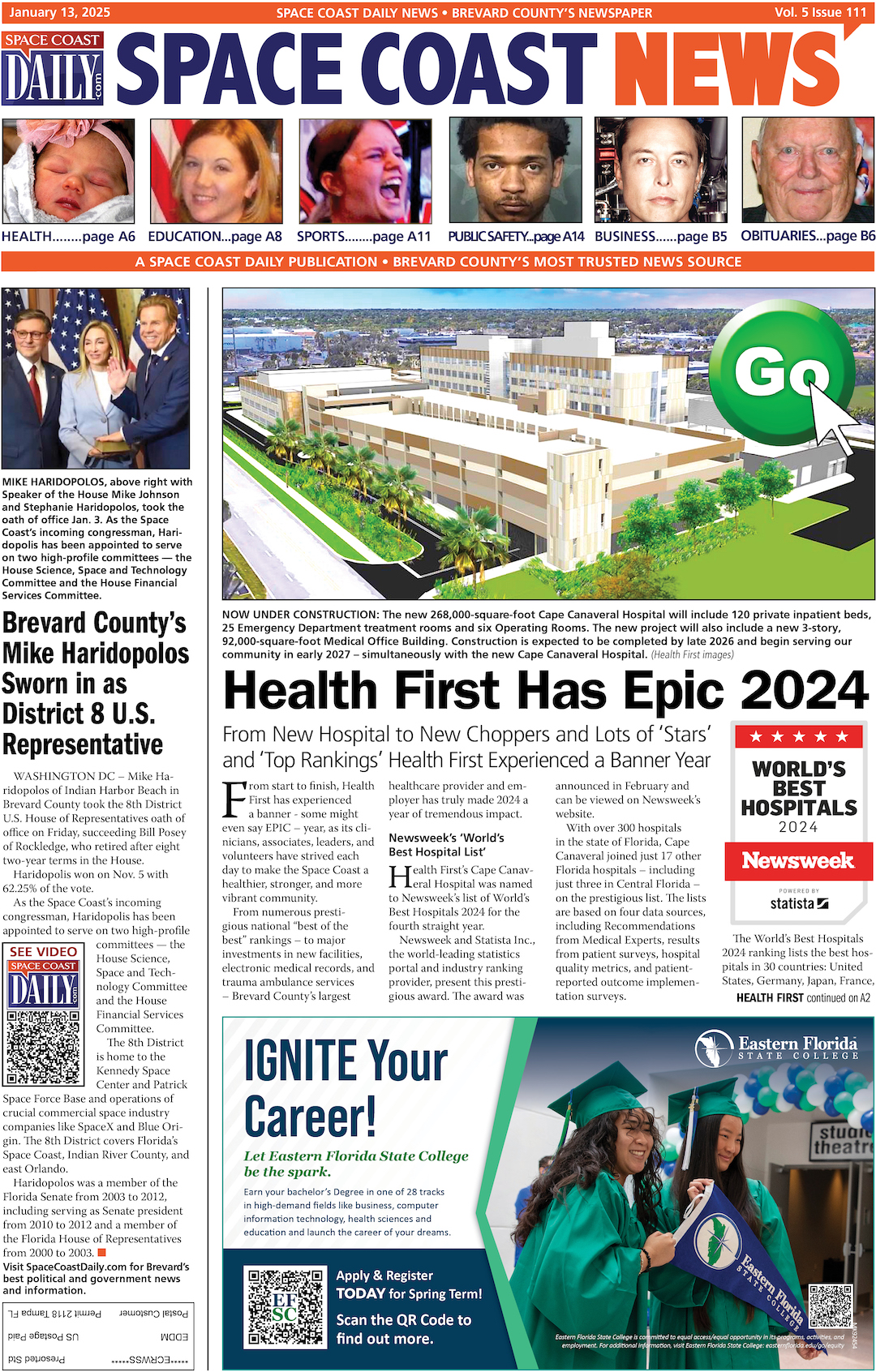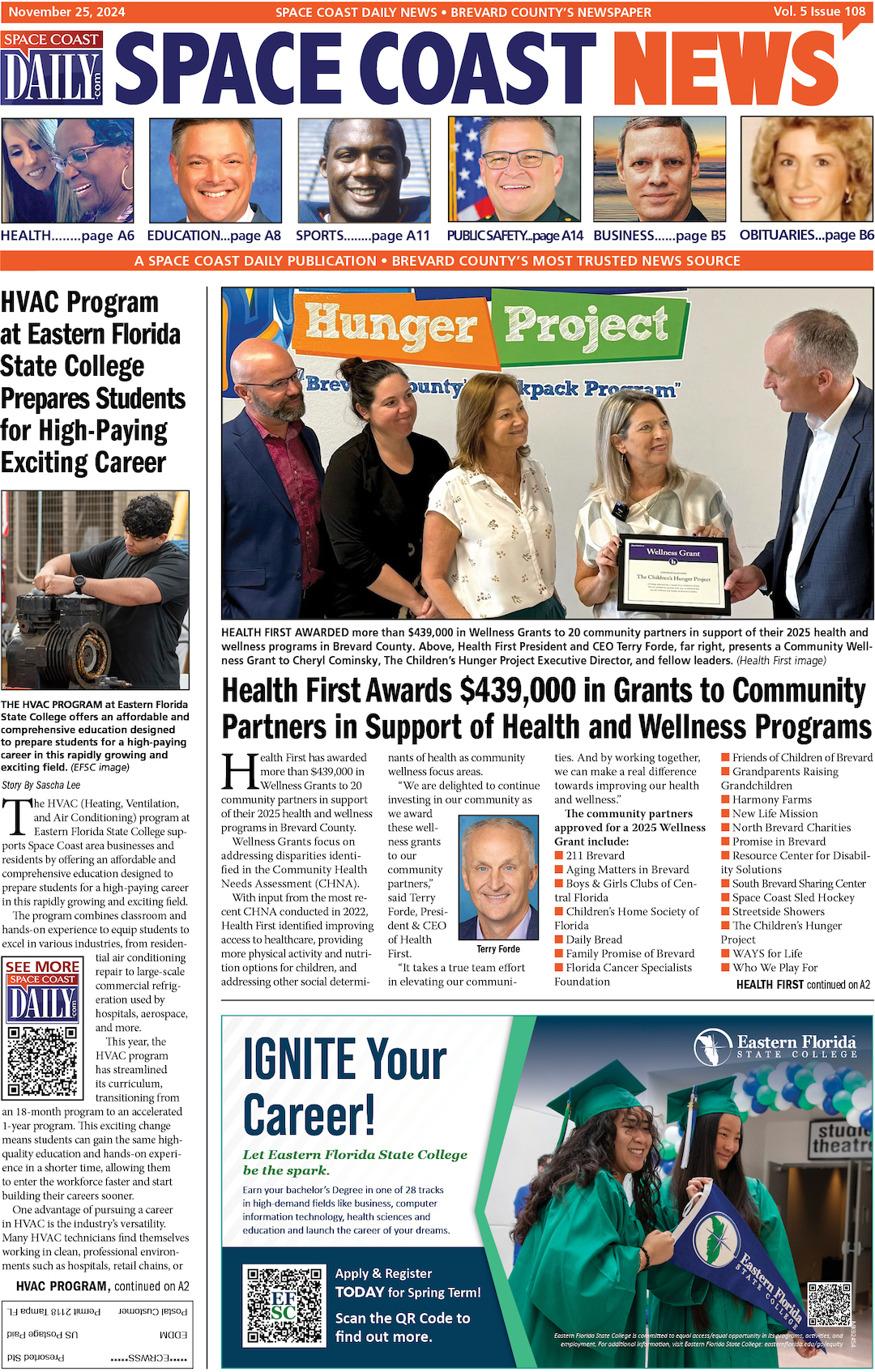Florida Tech Collaborates With Winter Haven Hospital Foundation on New Program for Psychology Students
By Florida Tech // January 15, 2021
'This is extremely important, and it’s great for students to have these learning opportunities.'

BREVARD COUNTY • MELBOURNE, FLORIDA — A powerful new partnership developed by the Florida Tech School of Psychology and the Winter Haven Hospital Foundation is providing doctoral students in psychology valuable real-world experiences and important services to patients in need.
Spearheaded by Joel Thomas, a Florida Tech alumnus and president of the Winter Haven Hospital Foundation, and Patrick Aragon, assistant professor of clinical psychology at Florida Tech, the program launched in September with doctoral clinical psychology students Tenasia Wynn and Shelby Gregson.
Two days each week, Wynn and Gregson are seeing patients and providing care at several Polk County facilities in the BayCare Health System and, just as importantly, working alongside medical residents from the Florida State University College of Medicine’s family medicine residency program in Winter Haven.
“It is unique to have two universities working together, helping people,” said Aragon, who supervises the program for Florida Tech.
A 2018 Polk County Community Health Needs Assessment highlighted the need for mental health services, so Thomas and the Foundation developed a multi-pronged approach to addressing it that included the establishment of the Psy.D Internship Training Program with Florida Tech.
“You’ve got the best and brightest of these new medical students combined with the best and brightest of clinical psychology,” he said. “It’s state-of-the-art thinking going into the patient encounter.”
Lisa Steelman, dean of Florida Tech’s College of Psychology and Liberal Arts, agreed.
“This is where the field is going – integrating psychology with medical doctors to provide care for the whole patient,” she said.
“This is extremely important, and it’s great for students to have these learning opportunities.”

For Wynn and Gregson, the experience is a critical step as they prepare for their professional futures.
“This is allowing me to apply the clinical and assessment skills that I learned from my classroom experiences,” said Wynn, who aspires to be a health service psychologist. “I am also able to see first-hand how cultural factors influence the psychological well-being and testing performance of medically compromised individuals.”
Gregson, who hopes to work in a medical setting to advocate for mental health, is excited to be building on her classroom knowledge, as well.
“I have always said it is one thing to ‘learn’ about what to do but it is another to actually utilize what you have learned,” she said. “Being involved in this training program has also given me a better understanding of psychopharmacology and the biological basis of behavior, and working with a diverse interdisciplinary team has allowed me to gain knowledge from many different disciplines within an integrative behavioral health setting.”
The partnership is a win for all involved, Thomas said.
“Health systems are paying millions of dollars for telepsychiatry and teleneurology. As the development of our FSU family medicine residency program with physicians, our objective is to grow our own clinical psychologists and retain them in our community.”














